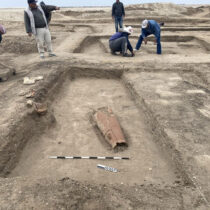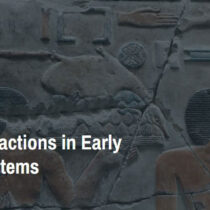Today, when a critical approach to world archaeology is necessary, there are many scholars who ask philosophical questions about the nature and social contribution of archaeology in order to clarify its role. Such an essential question is dealing with the relationship of archaeology with nation. Do archaeologists discover an “objective” past or do they create on their own alternative histories, which then they project in the past? How the socio-political and cultural environment influences the archaeologist’s work? This article aims to explore such issues in the field of Greek archaeology and, by adopting the methodology of critical evaluation, to define the relationship of archaeology and nationalism. Scholars from all over the world have already underlined the mutual character of this relationship. On the one hand, archaeology seems to become valuable when its findings can define the identity of a nation; and on the other, nationalism seems to be enhanced by using the “glorious” past and its remnants; Greek archaeology is not an exception to this common practice.
Archaeology and Nationalism: a Mutual Relationship
29 Aug 2012
by Archaeology Newsroom
- A
- A
- A

